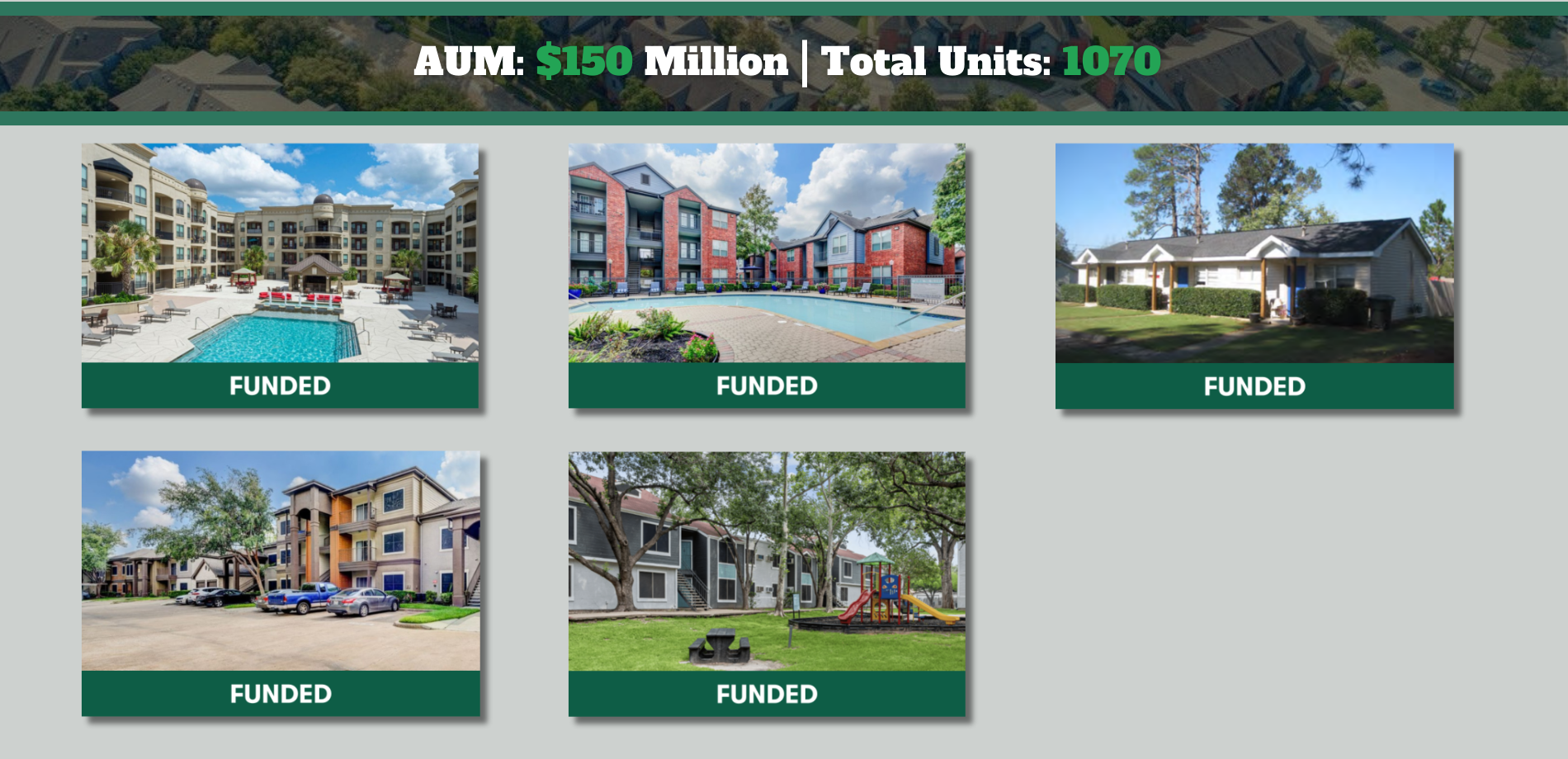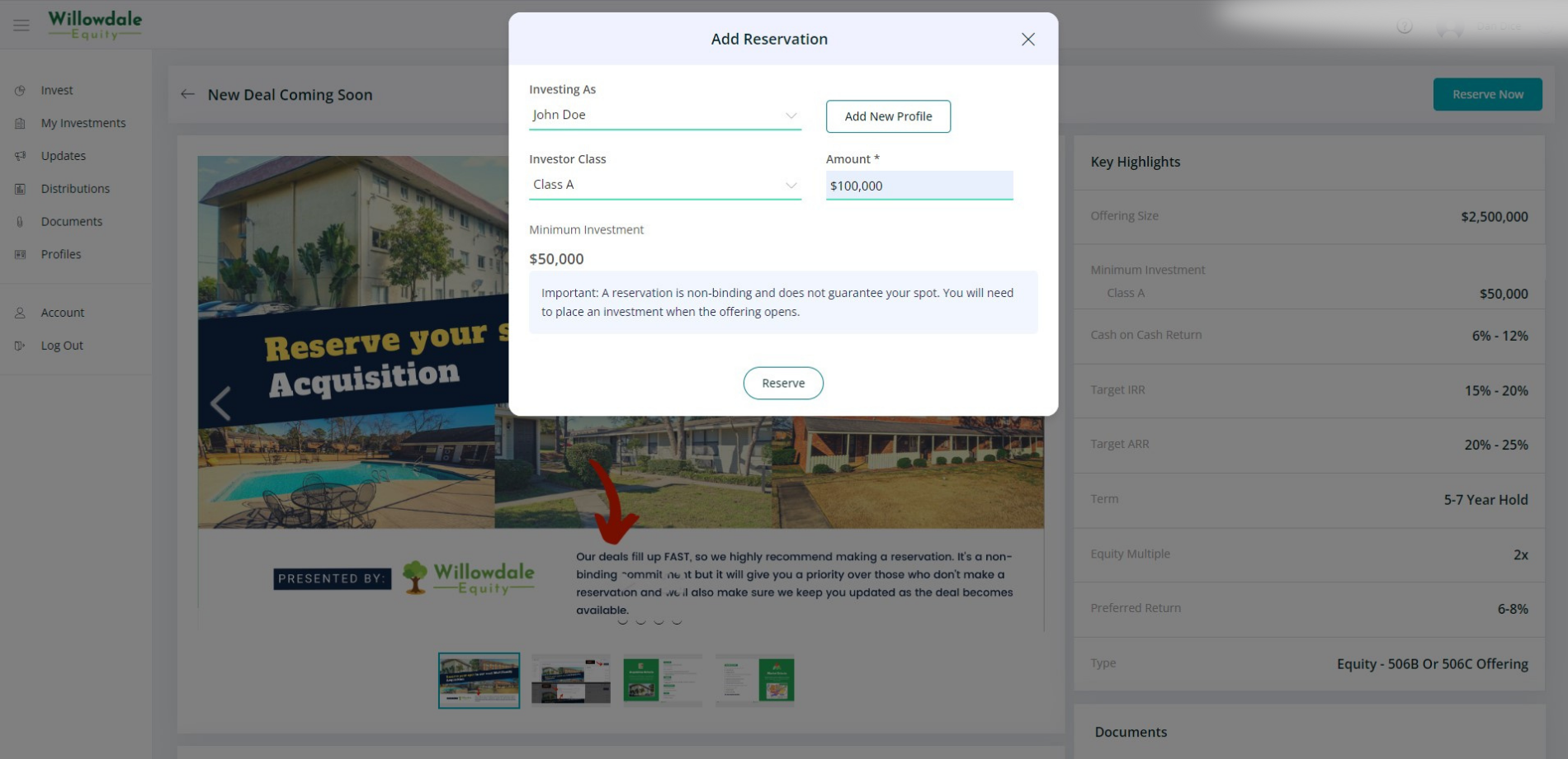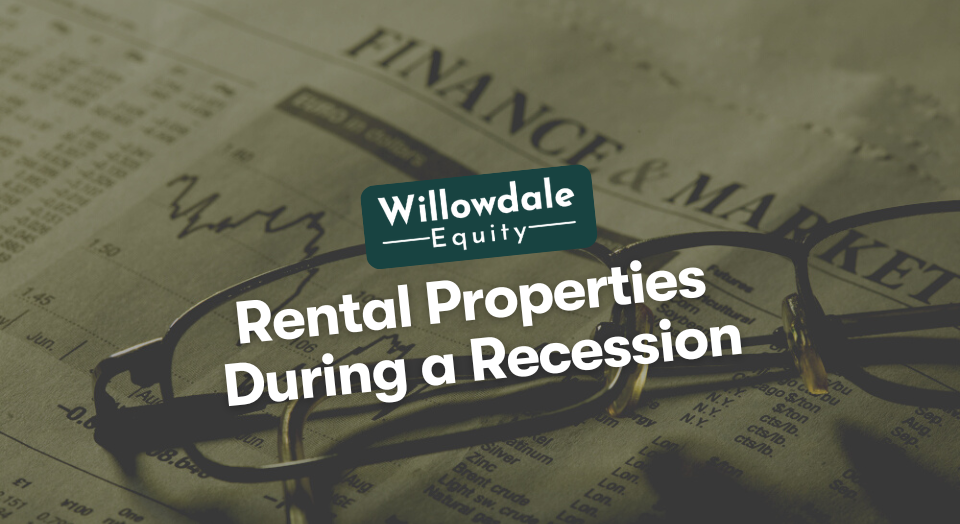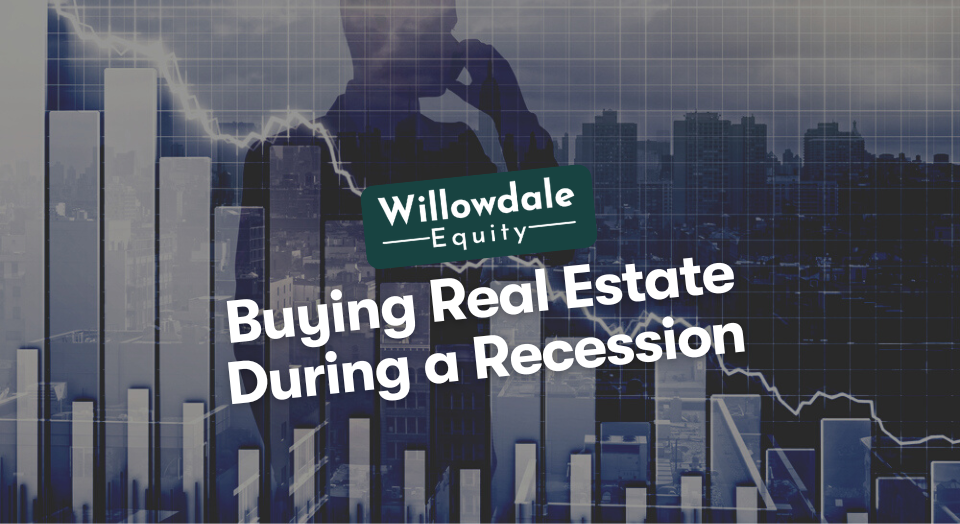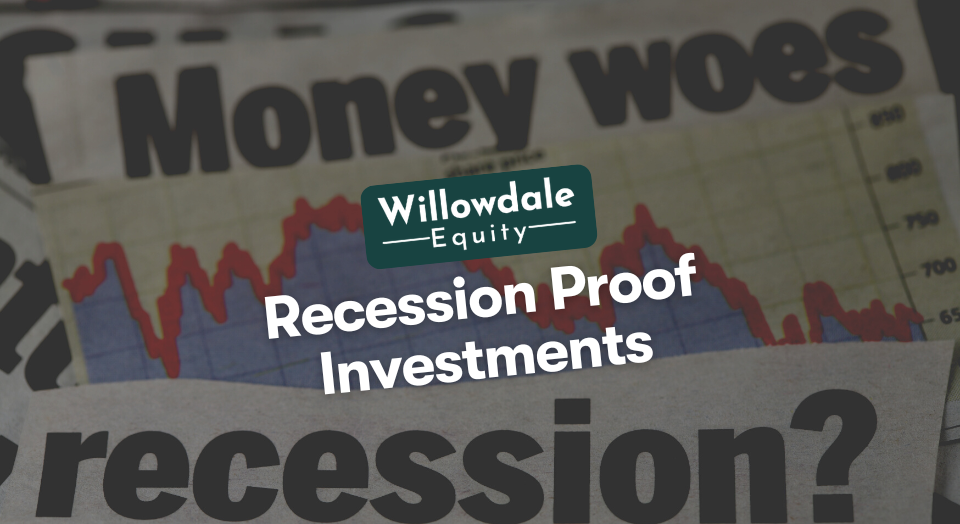
Recession Proof Investments: Where To Invest In a Recession?
This article is part of our guide on buying real estate during a recession, available here.
Recent sharp increases in inflation and interest rates and a similarly dramatic decline in the stock market have sounded the recession bells. A recession might be scary for investors, but it doesn’t have to be if you know what to watch.
The first step in deciding what to invest in during a recession is to think about your specific goals for investing. Do you intend to:
Reduce the possibility that an investment may lose value when the market is volatile.
- Increase long-term profits?
- Provide a stable source of income?
- Invest in stocks now while they are inexpensive.
While building a portfolio that uses each investment strategy would be ideal, effectively implementing even one of them might significantly impact your financial future. In this article, we help you create a recession-proof investment plan for navigating economic downturns.
We explain what recession proof means, who makes money during a recession, how to capitalize on the next recession, how to build a recession proof portfolio, and where to invest during a recession.
Key Takeaways
-
Although many things have been advertised as recession-proof, relatively few are. Even the most resilient firms or assets can frequently not endure the long-lasting effects of a recessionary era.
-
No investments are entirely recession-proof or recession resistant.
-
Investors should concentrate on investing in commercial real estate that produces consistent rent payments throughout the whole economic cycle, particularly during a recession.
What Does Recession Proof Mean?

An asset, business, sector, or other entity that is thought to be economically resilient to the impacts of a recession is referred to as being “recession proof.” Recession proof stocks are included to protect investment portfolios from periods of economic deterioration, which could signal the start of a recession.
Although many things have been advertised as recession-proof, relatively few are. Even the most resilient firms or assets can frequently not endure the long-lasting effects of a recessionary era. Even stocks, which are said to be the assets that are most susceptible to a recession, are not always foreseeable.
The beta values of investments that are seen as recession-proof are frequently negative, indicating an inverse link to the larger market. Because of the negative beta value of gold, it was initially thought that investments like gold and gold stocks would be immune to recessions. In some economic downturns, physical gold has fared well, although usually under specific conditions, such as anticipated high inflation.
Gold securities typically have a positive beta. Additionally, owning assets with negative beta in non-recessionary periods lowers the portfolio’s projected return.
An investment with a negative beta has an expected return typically less than the risk-free yield. Recession-proof investments frequently underperform both during periods of prosperity and after a recession.
Many people point to defensive stocks as recession-proof options, such as those in the healthcare or utility sectors. The justification is that irrespective of the state of the economy, people still need to buy things like energy and medical treatment. However, many defensive industries only account for a small portion of consumer expenditure, which reduces their ability to weather economic downturns.
Now that you know what recession proof means, it’s time to find out who makes money during a recession.
Who Makes Money During a Recession?
Recession-resistant industries include those mainly inelastic, such as food, healthcare, consumer goods, and basic transportation. They could gain from being regarded as crucial sectors in a public health crisis like the COVID-19 pandemic.
Also, people who were compelled to sell their homes due to financial constraints and those who may not have been able to purchase a home during a recession still need living space. For many, renting is the best option, at least in the short term.
Property management firms, landlords, and rental companies can profit when renting is anticipated to become a more desirable option during a recession, if not the only one. So, how can you follow suit and capitalize on the next recession? We will discuss that next.
Related Read: Is Rental Property a Good Investment in a Recession?
How to Capitalize on the Next Recession
Inflation is the highest it has been in 40 years. Rates of interest are rising. Additionally, a gallon of gas now costs a staggering $5.
Investors are being taken on a terrible roller-coaster ride by the stock market. Even if you haven’t looked recently, you are aware that your retirement account’s value is declining. And now you’re learning that a recession may already be upon us or is unavoidable.
The Great Recession, which affected many people’s lives, ended in 2009, but there were still residuals of the turmoil for years to come. It’s a good idea to assess how to benefit from the recession rather than letting it harm you now that the slowing economy seems to be headed for another economic downturn. Here are some tips for capitalizing on the next recession.
1.) Avoid Being Frightened By a Bear Market

Even if you have no idea what a bear market is, you are already prepared to be terrified of one. Since 1950, bear markets have lasted an average of 418 days. If you’re a longer-term investor, adjust your perspective and see this as an opportunity.
Pay attention to businesses that have healthy balance sheets, a consistent cash flow, and goods that people need and want.
Consumer staples and healthcare businesses have historically prospered during economic downturns because consumers still need their products. It’s a terrific time to use “dollar-cost averaging,” in which you consistently invest the same sum of money irrespective of market ups and downs.
While growth stocks suffer losses, historically, they have recovered well following recessions. You miss the ultimate recovery if you don’t have access to stocks.
2.) Buy Into Dividends
The most outstanding equities to own during a recession are those from well-established, large-cap corporations with solid cash flows and balance sheets. These businesses not only have a higher chance of surviving economic downturns than smaller ones with weak cash flows but are also more likely to distribute dividends.
Dividends have several uses for investors. First, you may rest easy knowing that a firm is financially stable and can endure most economic circumstances if it has a lengthy history of paying and rising dividends. Second, dividends act as a cushion for returns. You still earn a profit from your investment even when share prices fall. These factors explain why dividend equities perform better during market downturns than non-dividend stocks.
Investing exclusively in dividend-paying firms through exchange-traded funds (ETFs) or mutual funds is the best option for buying dividend equities. High current returns and capital appreciation are typically produced by funds that invest in businesses with a long history of paying dividends and a solid track record of raising those payouts.
3.) Invest in Consumer Staples
The increasingly value-conscious consumer still needs to purchase food, medications, personal care items, and medical supplies during economic downturns. These are the final things to be trimmed from the household budget because they are necessities.
Therefore, businesses providing food and other fundamental requirements do not experience revenue declines, whereas businesses selling flat-screen TVs and other optional commodities do. Because of their propensity to hold their ground even when the economy is struggling, consumer goods businesses are occasionally referred to as defensive stocks.
4.) Invest in Real Estate

Economic downturns are unavoidable. A recession will happen eventually; the question is not if but when. If they believe a recession is imminent, some investors may become overwhelmed by anxiety and refrain from making real estate investments. On the other hand, Savvy investors will keep making investments while taking several measures to recession-proof their real estate portfolio.
Real estate investor can safeguard their assets in a variety of ways. The first action to take is to increase cash flow. Investors will be better able to weather any economic slump if they have solid cash flow, even if property values decrease temporarily. If you haven’t already, make sure your rents are priced to market rates and look for other inexpensive ways to add value and collect additional income.
Related Read: 4 Phases of the Real Estate Cycle Explained
Another part of that strategy is buying assets in strong markets with high growth potential. This is where all the value is created, as the cash flow pays you to ride out the temporary or extended economic storm. Still, once the storm is over, you’ll have control over an asset that produces more substantial cash flow than when you acquired it. As a result, the next investor is willing to pay more for it, as it’s a cash flowing hard asset with intrinsic value.
Now that you understand how to capitalize on a recession, you can start building a recession proof portfolio.
How to Build a Recession Proof Portfolio
The Federal Reserve starts raising interest rates when there is significant inflation. Although they would generally need to raise rates to meet inflation to stamp out inflation, hopes are that numerous significant hikes should slow the economy. In periods like the 1970s, rates hit as high as 17%.
Similar to the 1907s, we could enter a period of dreaded stagflation when the economy slows down. However, inflation continues, which means that even if you don’t experience stock market losses, you will still lose money if you don’t make the appropriate investments. Your retirement funds, investments, and savings have less purchasing power daily.
The fact that most individuals are not well-diversified poses the biggest threat. It’s good to increase your portfolio to at least seven to ten different assets.
The worst-performing investments during a recession are speculative, cyclical, and highly leveraged. In comparison, those who wish to make money during a recession will put their money into high-quality assets with strong cash flow that has historically performed well.
Investors with experience who have gone through a recession previously invest far more in alternative assets than they do in stocks, bonds, and cash to protect their capital from these economic fluctuations. They choose less correlated assets, including those in precious metals and real estate. Doing this will help you in your efforts to build a recession proof portfolio.
So, where should you invest in a recession to stay financially stable? That is detailed next.
Related Read: What’s the Difference Between Stagflation and Recession?
Where to Invest in a Recession

No investments are entirely recession-proof or recession resistant. However, the following investments typically perform well during an economic or market downturn:
- Hedge funds: One of the best portfolio hedges during downturns and bear markets is hedge funds. They can make money in bull markets, but they can also employ short selling to profit from declines and reduce market risk.
- Private Equity: Less liquid than listed securities is private equity funds. Instead of being influenced by market forces, a company’s long-term potential determines the value of private investments. As a result, while they are still susceptible to an economic downturn, they are not as sensitive as equities.
- Precious metals: Silver and gold are tangible assets with a finite quantity. Their valuations are more stable and not based on long-term cash flows like those of financial assets. Because they are viewed as safe-haven investments, precious metals frequently increase in value while stock prices decline. But more crucially, they lessen portfolio volatility over time.
- Real estate, including multifamily real estate: Investors should concentrate on investing in commercial real estate that produces consistent rent payments throughout the whole economic cycle, particularly during a recession. Passive investments in multifamily can result in yields akin to bonds through regular distributions and a potential rise in property value over time.
Multifamily beats other types of commercial real estate since it meets a fundamental human need: housing. Since this specific asset class offers a mix of tax, appreciation, and cash flow benefits, especially in times of rising interest rates and an unpredictable economic outlook, there has been a significant movement in real estate investors’ portfolios toward multifamily buildings. For the volume of space rented, multifamily dwellings are also a significant revenue source. Generally speaking, you can charge more than if a single-family were to rent the entire structure. As a result, prospective earnings considerably increase.
A multifamily residence also spreads the risk to ensure better risk tolerance during a recession. Let’s assume that one family vacates the apartment, leaving it vacant for a month and earning nothing. Other families are still residing there in the interim, which brings in income for you. The other tenants will probably continue to pay even if one starts to cause problems and doesn’t make payments on time.
Moving into an apartment is less expensive than moving into a house during a recession. Multifamily houses should therefore have a better chance of swiftly finding tenants. However, real estate investors do not always make money during a recession, as seen during the 2008 market crash.
Who Made Money in 2008 Crash?
Paulson placed the most profitable wager against the housing bubble. As The Wall Street Journal reported, his hedge fund company, Paulson & Co., gained $20 billion on the deal between 2007 and 2009 due to its wagers against subprime housing loans via credit default swaps.
We now know who made the most money during the 2008 economic downturn but what were the best investments during the great depression of the 1920s and 1930s? Let’s find out.
What Were the Best Investments During the Great Depression?
Government bonds were sanctuaries for investors during the 1929 crash, even though stock prices plummeted. You wouldn’t have been protected from stock market losses with a bond position, but it would have at least lessened the blow.
Frequently Asked Questions about Recession Proof Investments
Businesses that boomed during the great depression included food, healthcare, communications, capital goods, and security companies.
Making financial decisions today, including paying off debt and accumulating cash reserves, can help you prepare for a recession. Create an emergency fund. Put a wide range of investments in your portfolio that react differently when markets decline.
Recession Proof Investment – Conclusion
Investing in a recession can be troublesome if you don’t have a plan. However, investing in a recession could be much simpler and even more rewarding with a well-diversified portfolio and a few strategic tweaks.
Real estate investing involves risk. The risk can be reduced with a few recession proof investments, such as multifamily real estate investing. However, because they are rare, you should also search for long-term possibilities during a financial crisis.
Join the Investors Club here at Willowdale Equity to learn more and get access to private value-add multifamily investment opportunities across the southeastern United States.
Sources:
- Investopedia, “Recession Proof”
- Investopedia, “Industries That Can Thrive During Recessions”
- Forbes, “How to Invest During A Recession”
The Willowdale Equity Investment Club is a private group of investors that are looking to passively grow their capital and share in all the tax benefits through multifamily real estate investments.
